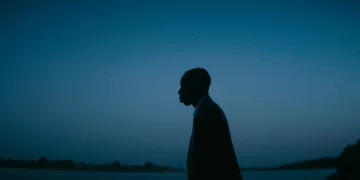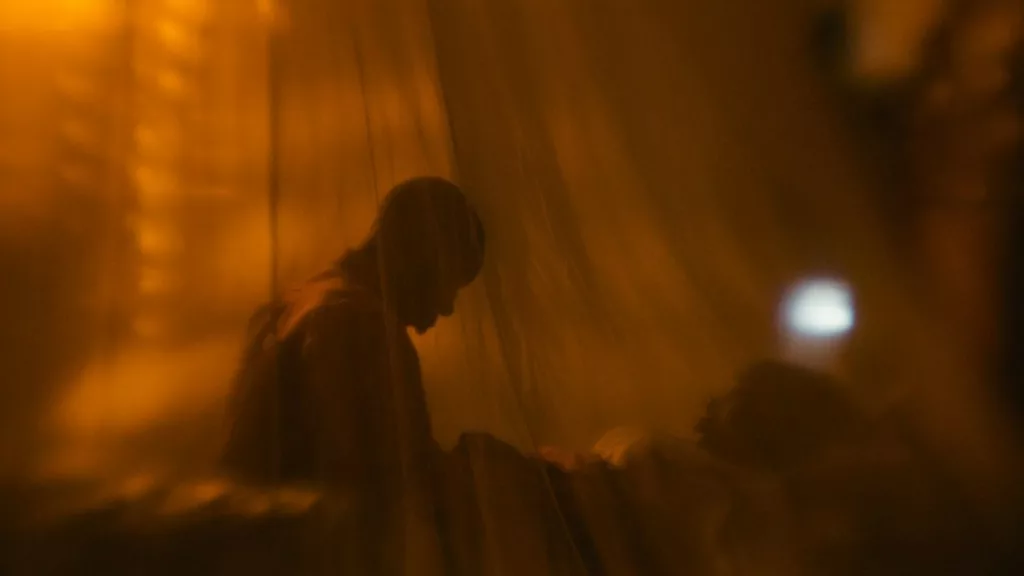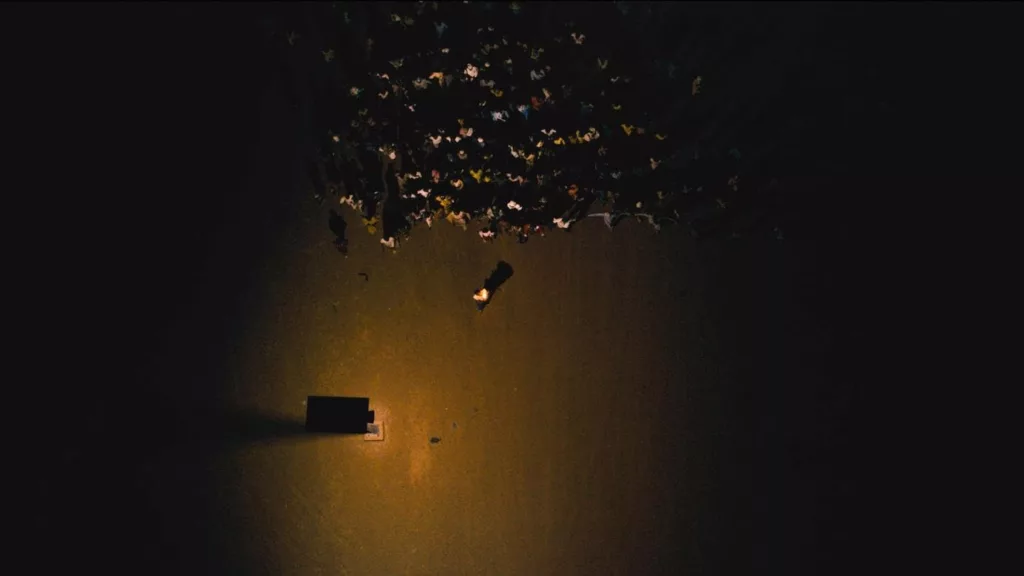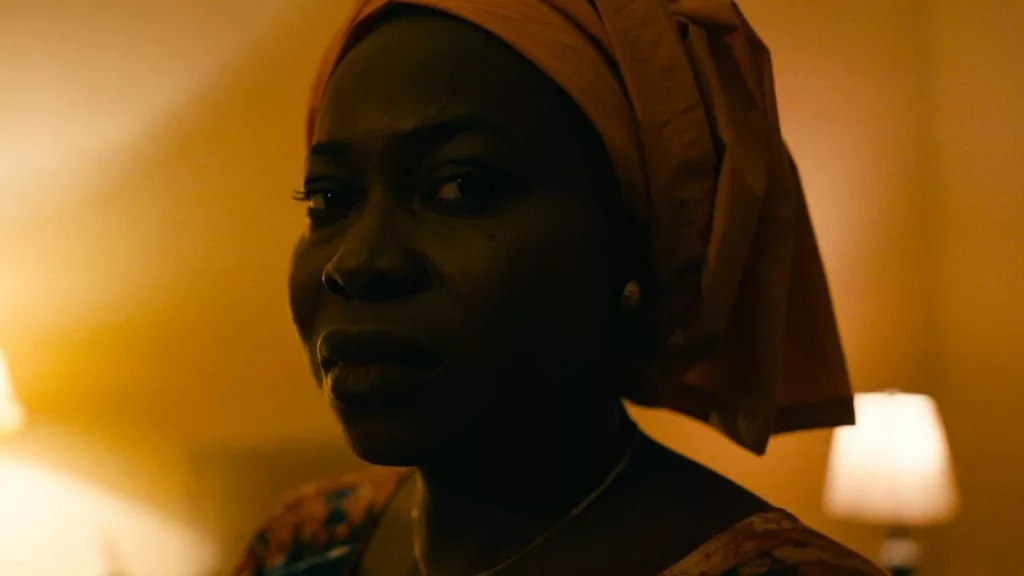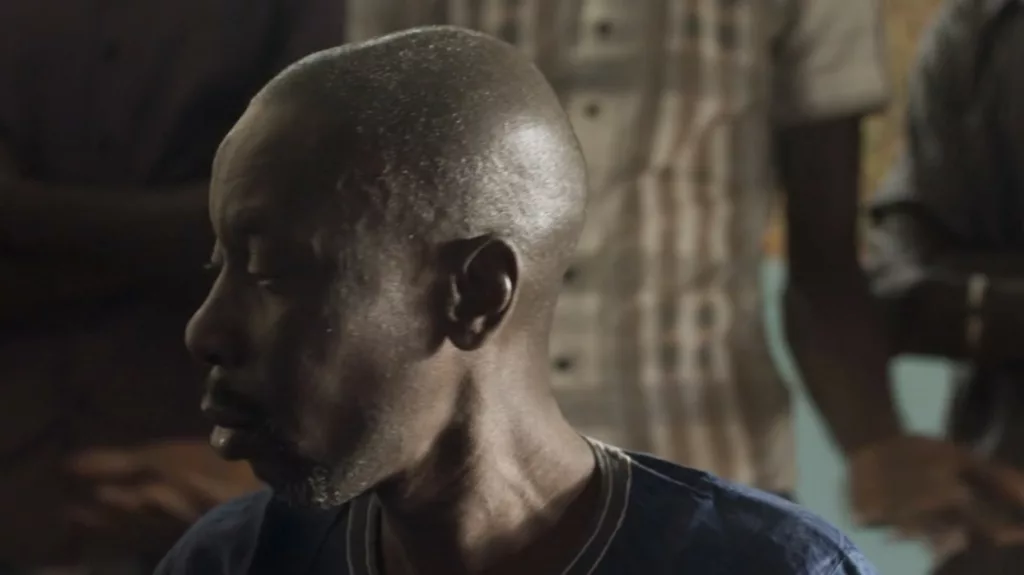Filmmaker Mamadou Dia may not be a household name yet, but his emotionally powerful new drama Demba signals the arrival of a bold directing talent. This is only Dia’s second feature film, following his acclaimed 2019 debut Nafi’s Father. Now, the Senegalese director brings his intimate indie sensibilities to the international stage with Demba’s premiere at the eminent Berlin Film Festival.
Centered on a middle-aged civil servant named Demba struggling with the recent death of his wife, Dia’s latest work is a penetrating character study that uses experimental narrative techniques to immerse us in the protagonist’s fractured psyche. As Demba grapples with grief and deteriorating mental health, the story explores the contrast between his anguished inner world and the well-meaning but limited communal support in his small hometown.
Shooting on location in northern Senegal with non-professional local actors, Dia crafts an authentic ethnographic fiction film that provides insight into his region’s culture while tackling universal themes of loss, healing, and redemption. Festival audiences should prepare for a challenging yet ultimately empathetic viewing experience.
A Widower Unravels
At the heart of Demba is Ben Mahmoud Mbow’s raw performance as the title character, a gaunt civil servant undone by grief. As the film opens, the 50-something Demba receives the crushing news that he’s being let go from his clerk job at the town hall after 27 years. This comes on the heels of his wife Awa’s death, which still haunts Demba almost two years later. We glimpse Awa (Awa Djiga Kane) in flashbacks and spectral visitations, while their son Bajjo (Mamadou Sylla) looks on warily as his father spirals.
Bajjo tries to support Demba, but struggles to connect with this difficult man prone to violent outbursts. Demba angrily protests his termination to no avail, continuing to wear his shabby suit as his last grasp at normalcy slips away. His mind increasingly blurs past and present, memory and delusion. Local customs around death, like the ghostly Tajabone festival, shape his fractured perception of reality.
Director Dia roots us in the textures of small-town Senegalese life even as Demba loses his own sense of place. Shooting on location with non-actors offers striking verisimilitude. Yet Dia also employs daring narrative and aesthetic techniques to viscerally evoke his protagonist’s disintegrating mental state for the viewer. It’s a disorienting descent that confronts cultural barriers around acknowledging mental illness while conveying the universality of anguish.
An Unflinching Portrait of Anguish
Director Mamadou Dia states that his native language of Pulaar has no word for “depression.” Yet Demba grapples profoundly with mental illness through the tale of its bereaved protagonist. Dia brings an unsparing spotlight to depression’s toll within a community that tries but ultimately fails to fully comprehend Demba’s anguish.
Visually, Dia externalizes his hero’s inner crisis through the starkly beautiful landscapes around northern Senegal’s Matam region. Cinematographer Sheldon Chau frames Demba as a gaunt figure adrift in this isolation, reflected in mirrors and glimpsed through windows in a nod to his fragmented psyche. The barren setting parallels the emotional void left by his wife’s death.
Editorially, Dia embraces slippages in time and reality to inhabit Demba’s disturbed mindset. Flashbacks, dreams, even hauntings bleed into an unstable narrative structure, augmented by hazy visual textures and ominous audio effects that immerse us in Demba’s subjective experience.
This avant-garde approach intentionally disorients to convey the disconnect between Demba’s trauma and his society’s oblique interpretation of mental health issues. Well-meaning communal rituals around death ring hollow, unable to penetrate his despair. Yet Dia resists easy critiques; his compassionate lens recognizes cultural wisdom even as its limits are exposed.
Ultimately Demba suggests the path forward lies in reconciling personal vulnerability with collective care. As Demba reaches for genuine connection with his estranged son Bajjo and Bajjo’s girlfriend Oumy, the film zeroes in on empathy and understanding as the only true balm for suffering. Dia has crafted a visually daring, emotionally lacerating drama that locates universality in one man’s intensely specific pain.
Raw Authenticity Anchors the Abstract
Ben Mahmoud Mbow delivers a shattering lead performance as the disintegrating Demba. The actor’s gaunt physicality exudes world-weariness and wounded pride as his job loss compounds his grief. Mbow channels volcanic emotion through reserved gestures and haunted looks, grounding Dia’s slippery film with wrenching authenticity.
He receives strong support from non-professional local actors like Mamadou Sylla as his frustrated son Bajjo. Shooting in their real-life community allows these performers to fully inhabit their roles for a documentary-like realism. Yet cinematographer Sheldon Chau also crafts arresting visual poetry through the Niger Valley landscapes.
Chau’s roving camerawork mixes tactile close-ups with wider shots situating man amidst desolate beauty. Painting with natural light, he generates painterly images from the region’s stark palette. When Dia does use color, it’s for symbolic punch: the vibrant hues of the ghostly Tajabone festival underline the surreal, as the film’s saturated grading gives way to a sickly green.
Disorienting editing, eerie sound design, and a mix of elegiac and jagged musical cues all help externalize Demba’s cascading psyche. The technical craft and raw performances reinforce one another, forging artistic brilliance from regional specificity. Even as its nonlinear structure loses some viewers, Demba casts a cumulative spell through scintillating style and empathy.
A Singular Cinematic Vision
Demba heralds the breakthrough of a daring directorial talent in Mamadou Dia. While his unconventional choices frustrate literal-minded viewers, the Senegalese auteur succeeds as a risk-taking stylist. His impressionistic plunge into one man’s psyche crystallizes larger truths about the prison of grief.
Some may critique gaps in narrative coherence. But Dia undeniably conjures a sensorially immersive voyage filtered through Demba’s scarred subjectivity. The universal resonance stems not just from wrenching lead turns by Ben Mahmoud Mbow and Awa Djiga Kane. Dia’s lyrical vision extracts the cosmic from the regional, crafting poetry from the textures of Matam.
The director shows admirable fearlessness in translating mental dissolution through the grammar of film. While Demba won’t be for everyone, its singular intensity promises to galvanize adventurous arthouse audiences searching for boundary-pushing cinema. Dia has marked himself as a rising auteur able to transform the shape of personal trauma into bold new forms. With emotional wisdom beyond its narrow focus, Demba heralds the arrival of an unforgettable cinematic voice.
The Review
Demba
A visually arresting and emotionally devastating character study, Demba announces the arrival of Mamadou Dia as a directorial force. By immersing us into the fragmented psyche of a widower's mental dissolution through a fractured narrative lens, Dia has crafted a raw portrait of grief's universality. Anchored by Ben Mahmoud Mbow's magisterial central performance, Demba casts a cumulative spell. This is challenging but ultimately transcendent arthouse cinema for intrepid audiences.
PROS
- Powerful central performance by Ben Mahmoud Mbow
- Daring impressionistic visual style
- Immersive sound design and music
- Authentic sense of place and culture
- Nuanced exploration of grief and mental health
CONS
- Fragmented narrative can frustrate viewers
- Overreliance on aesthetic over story clarity
- Pacing drags at times
- Limits accessibility to mainstream audiences
